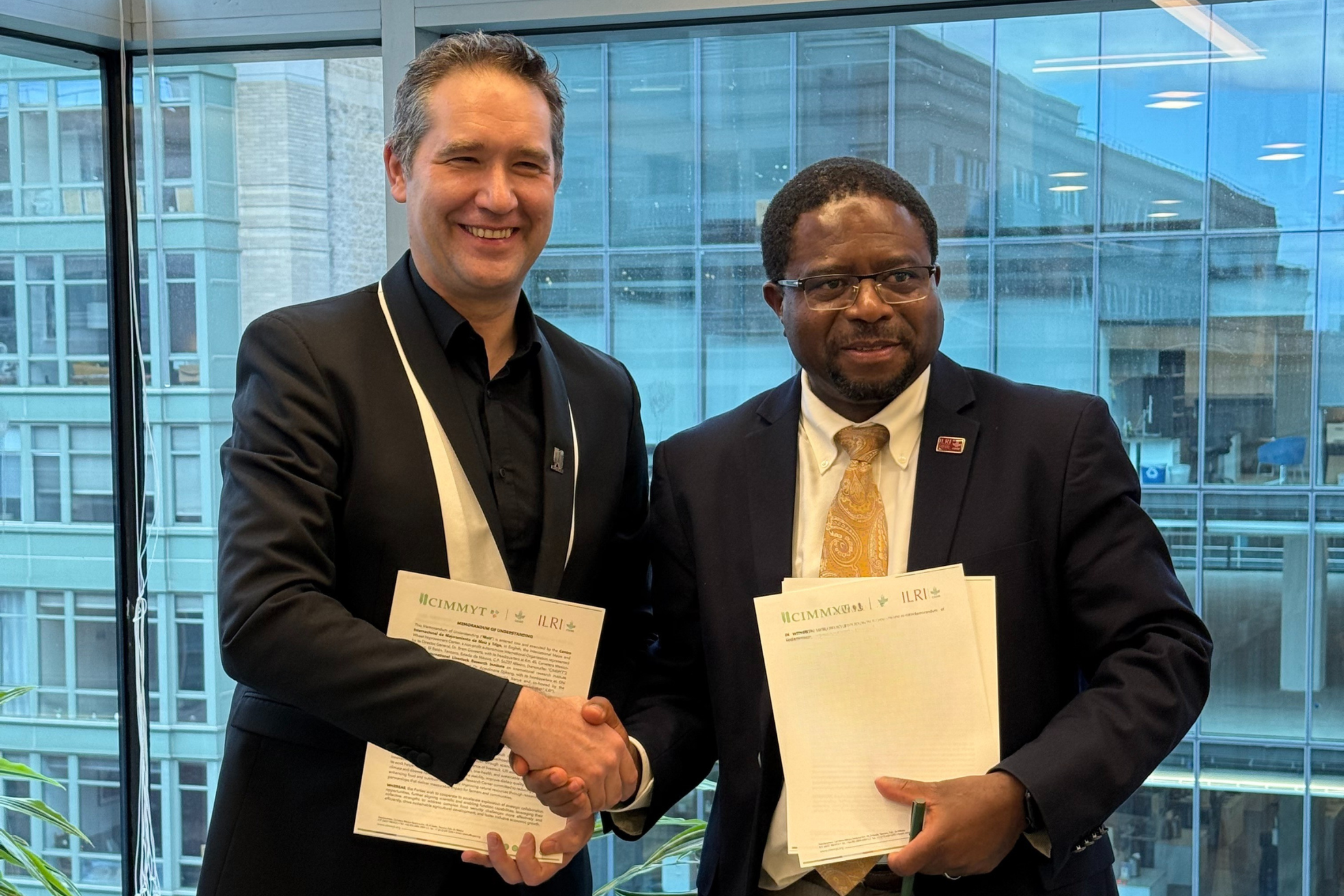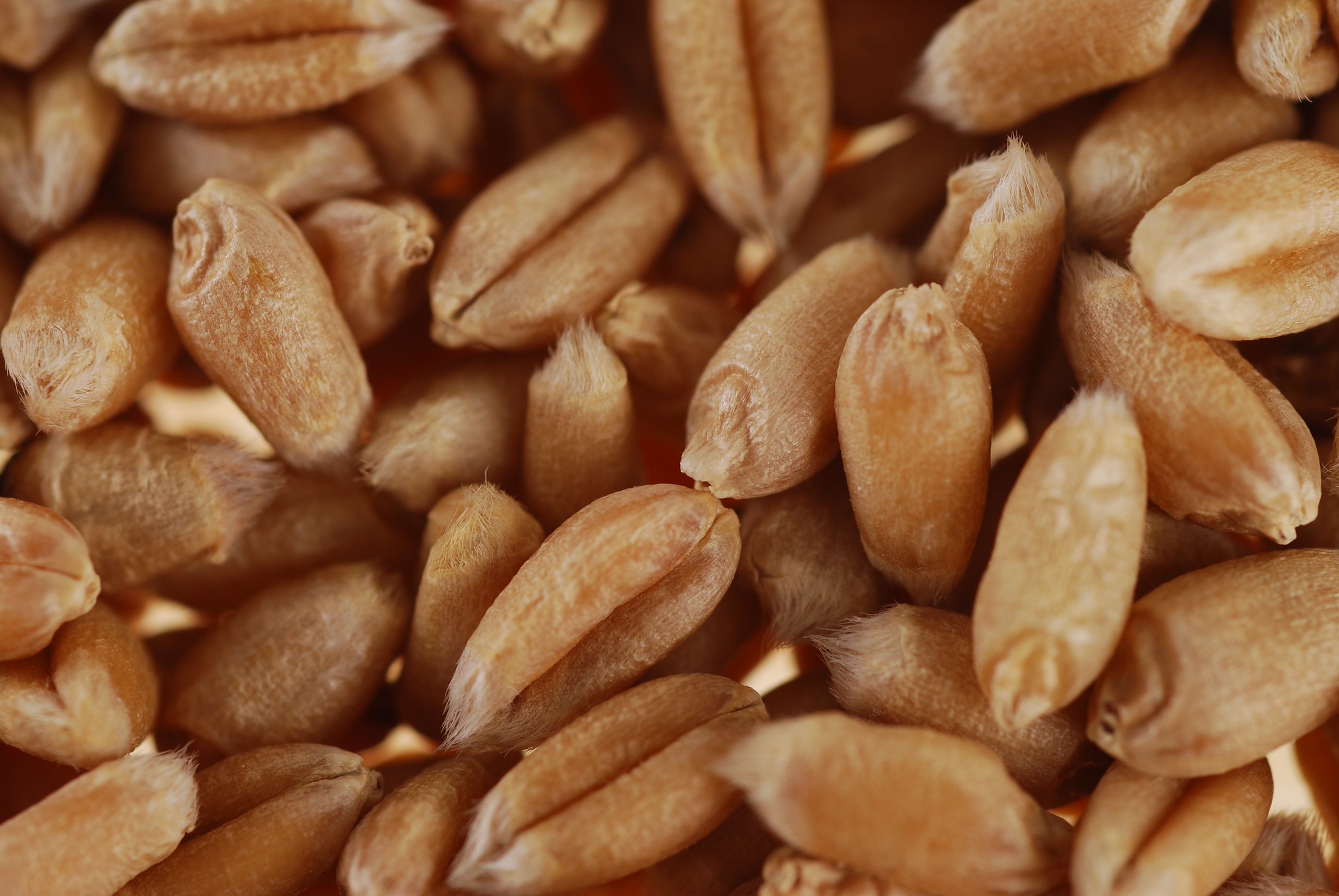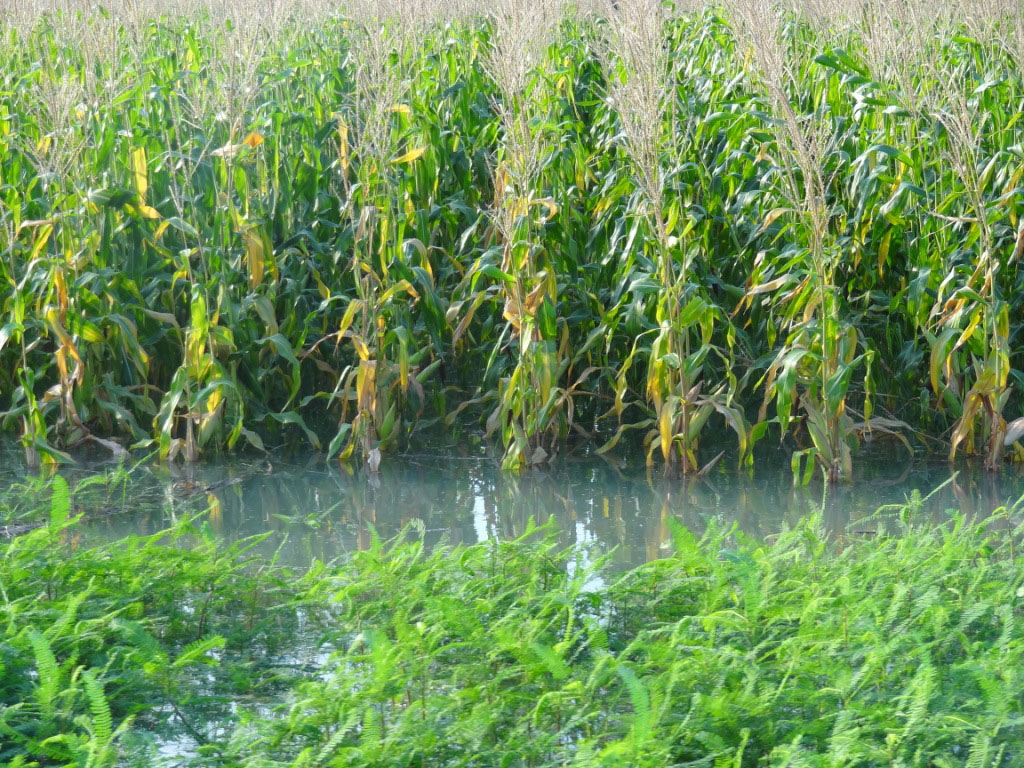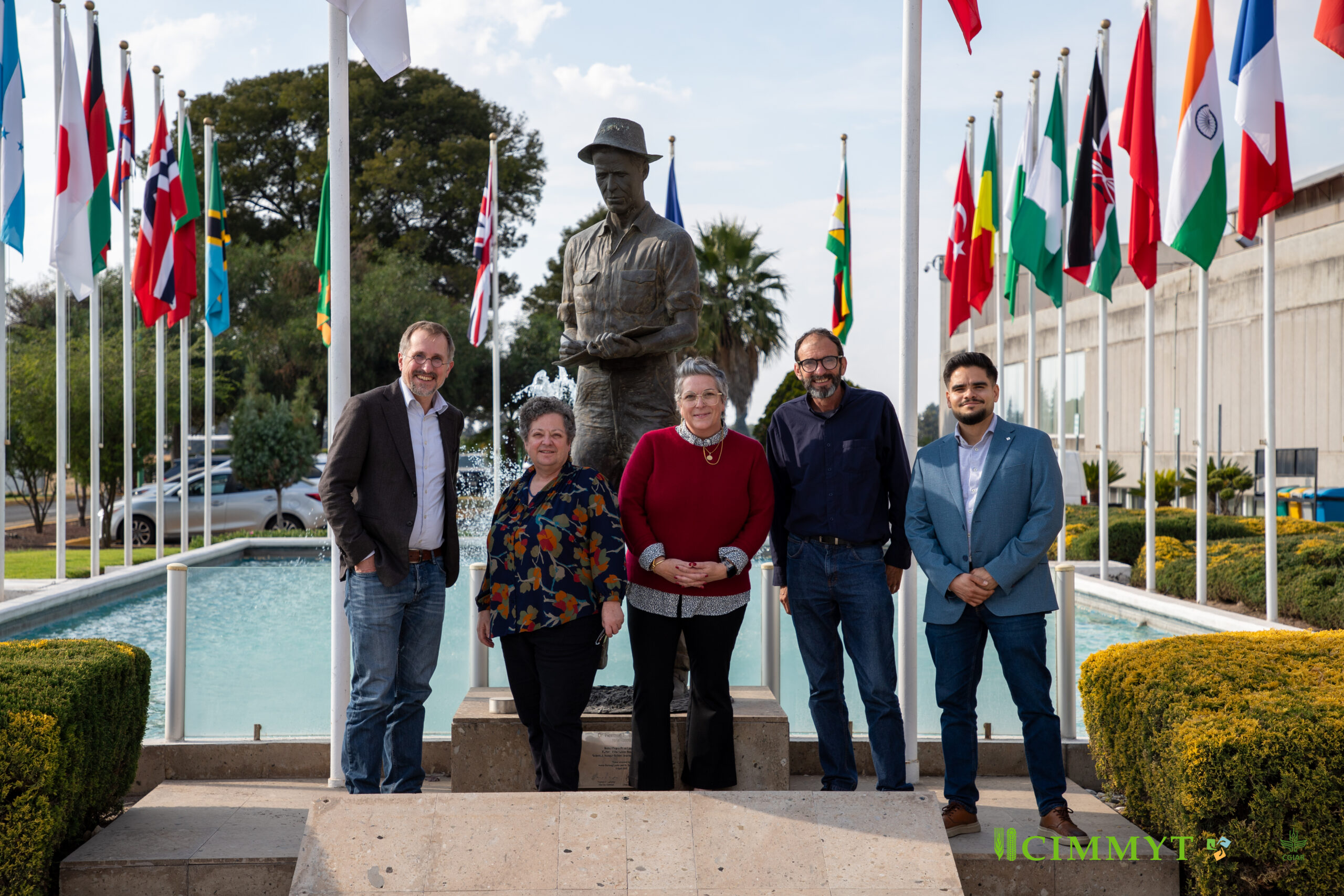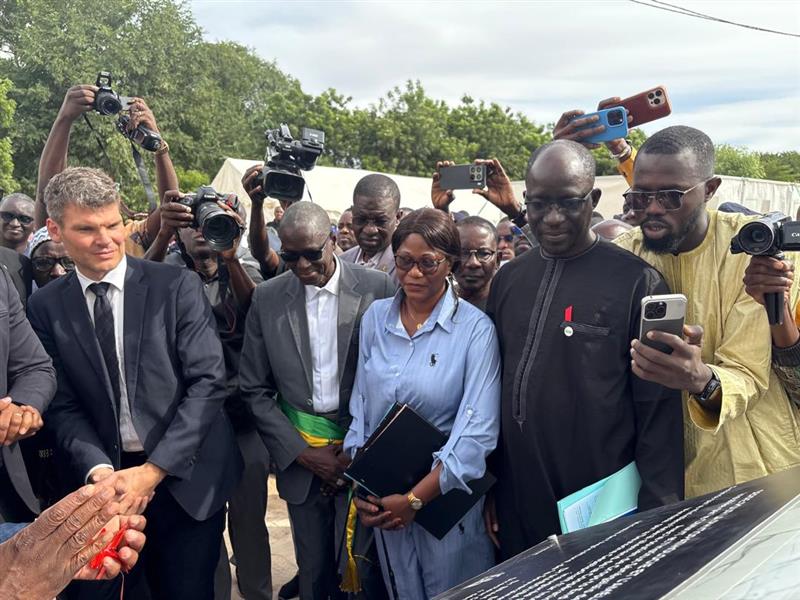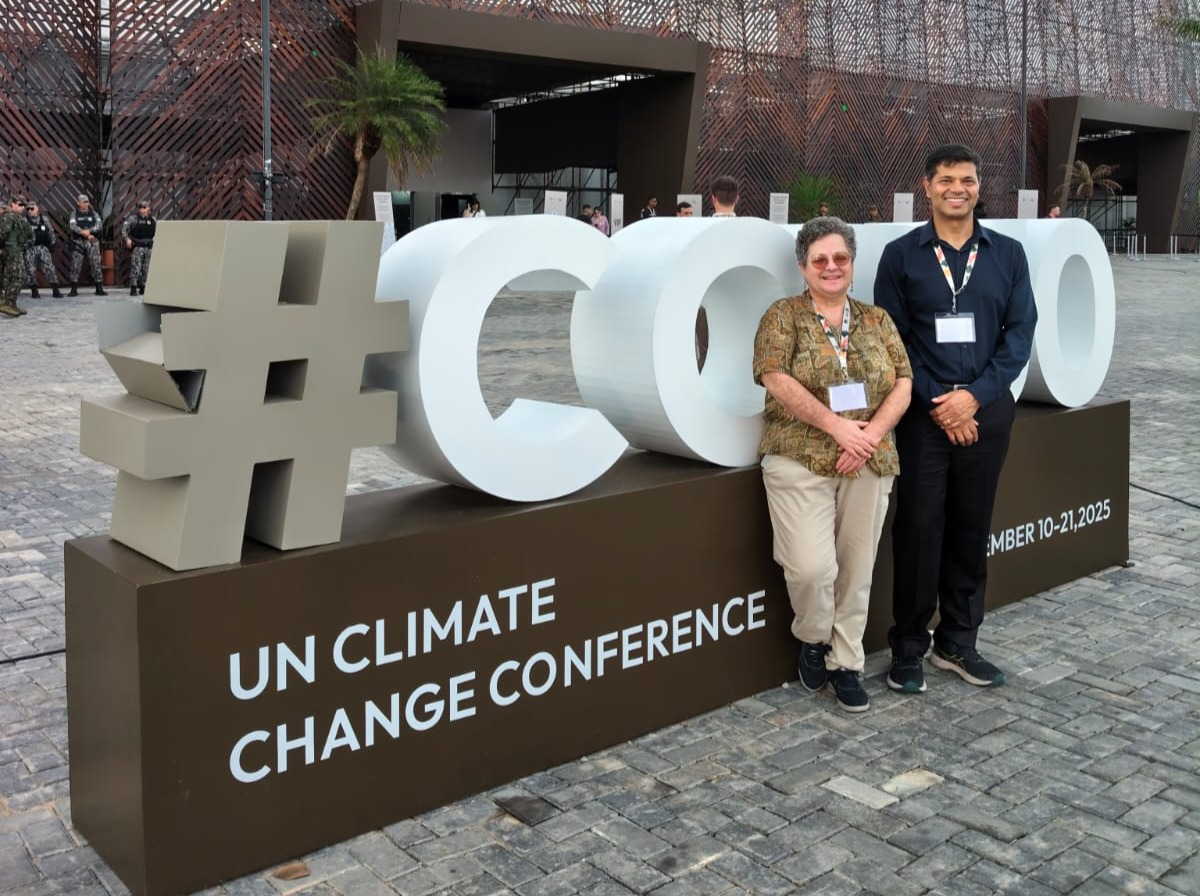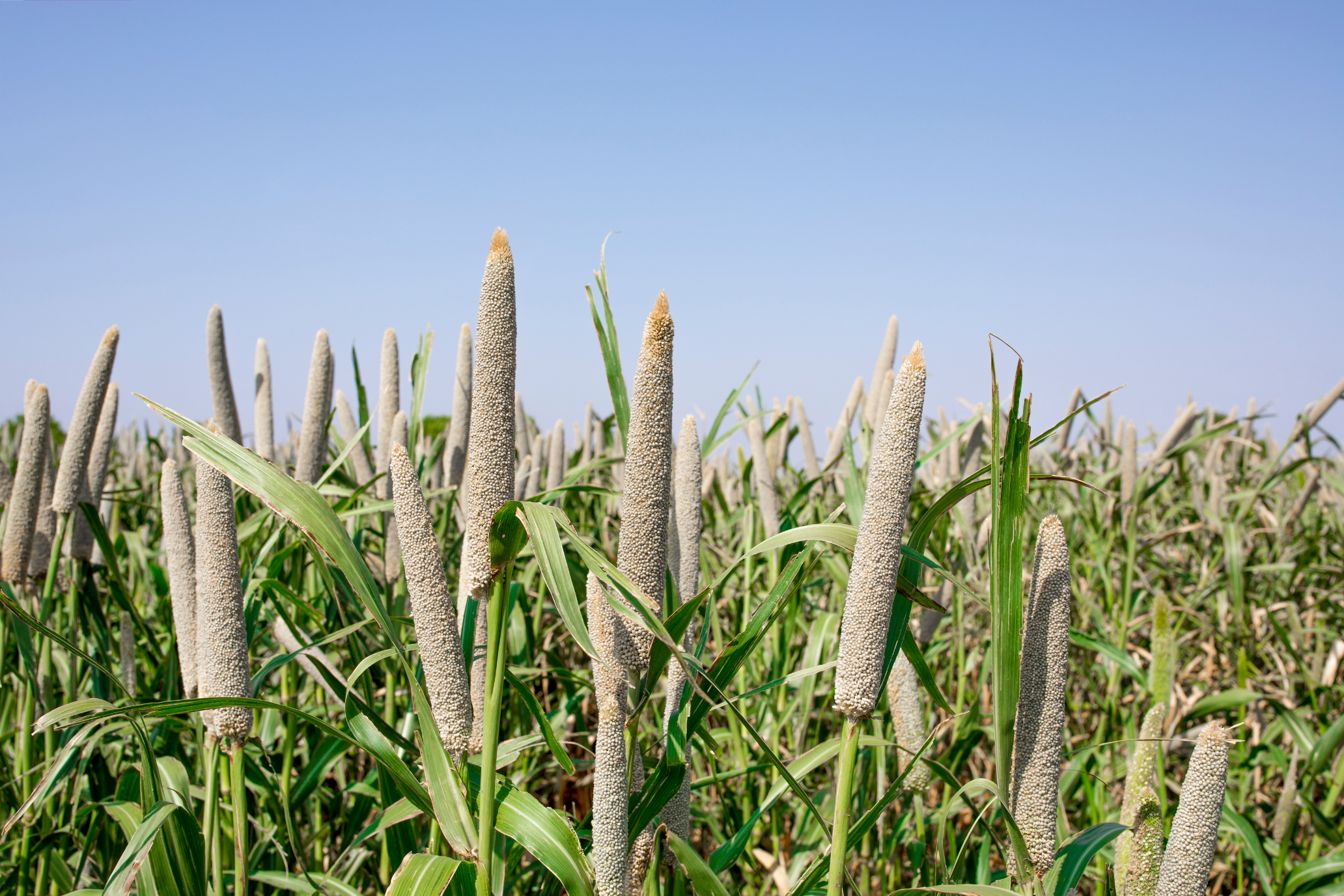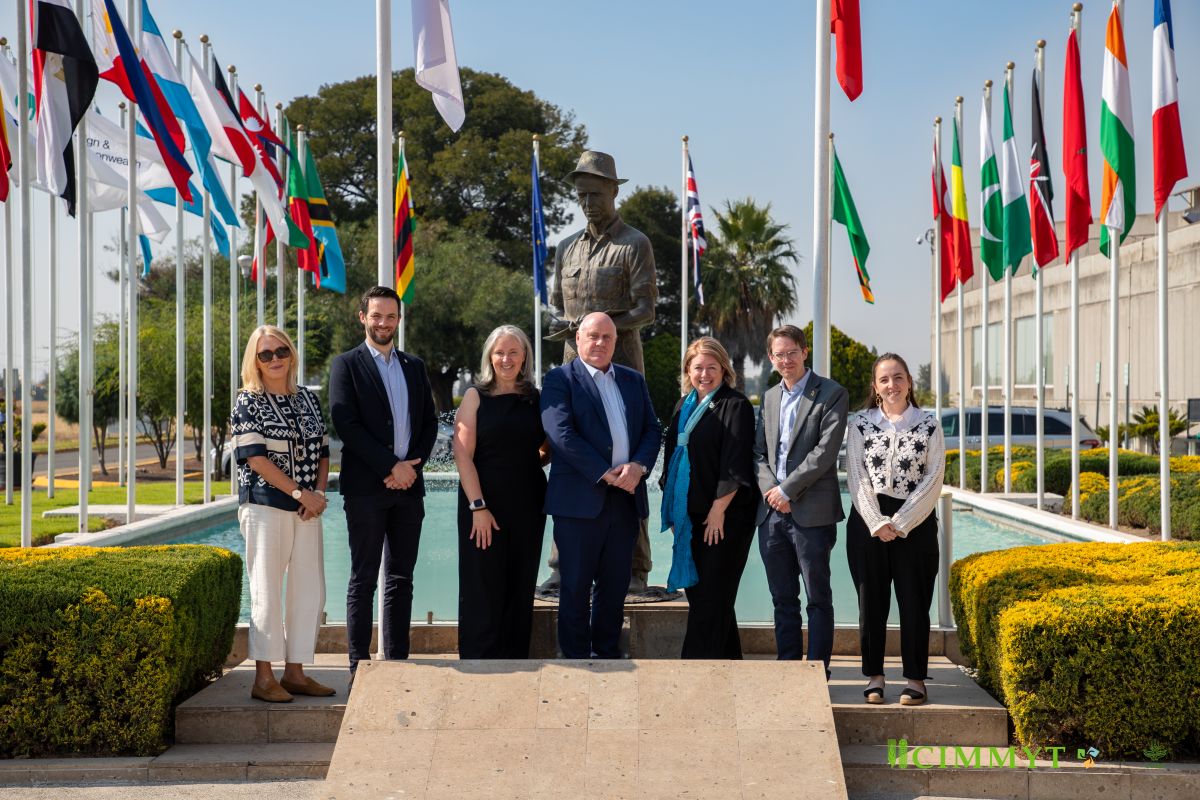ILRI and CIMMYT sign strategic MoU to accelerate impact in crop-livestock Systems
 Climate adaptation and mitigation
Climate adaptation and mitigation
CIMMYT and ILRI have signed a new MoU to strengthen their partnership and accelerate impact across global food systems
Wheat Research and the Power of International Collaboration
 Climate adaptation and mitigation
Climate adaptation and mitigation
Global collaboration in wheat research, with CIMMYT at its core, remains essential for food security worldwide
Release of a new set of 13 CIMMYT Maize Lines (CML648B-CML660B)
 Innovations
Innovations
CIMMYT announces the release of 13 new maize inbred lines developed to enhance productivity and stress tolerance in tropical maize systems worldwide.
Bright Horizons for Nutrition in Zimbabwe
 Capacity development
Capacity development
Biofortified wheat varieties developed by CIMMYT are helping tackle hidden hunger in Zimbabwe by delivering higher zinc content, improved yields, and climate resilience directly through the seeds farmers grow and consume.
CIMMYT Hosts Launch of the 2025 EAT-Lancet Commission Report
 Environmental health and biodiversity
Environmental health and biodiversity
CIMMYT hosted the global launch of the 2025 EAT-Lancet Commission Report, convening leading scientists and partners to advance evidence-based pathways toward healthy, sustainable, and just food systems.
Eight New CIMMYT maize hybrids available from Southern Africa Breeding Program
 Climate adaptation and mitigation
Climate adaptation and mitigation
CIMMYT unveils eight new tropical maize hybrids for uptake by partners targeting Southern Africa and similar regions
Sustain Africa Supports Fertilizer Deliveries for Agricultural Recovery in Sudan
 Climate adaptation and mitigation
Climate adaptation and mitigation
CIMMYT and KAUST sign Memorandum of Understanding to advance genomic innovation and strengthen global food security
 Capacity development
Capacity development
CIMMYT and King Abdullah University of Science and Technology have formalized a scientific partnership to accelerate genomic innovation and strengthen global food security
Regenerating Soil, Securing Tomorrow
 Climate adaptation and mitigation
Climate adaptation and mitigation
Soil health is a pressing global priority, and restoring its vitality through science and regenerative practices is essential to sustain food systems and strengthen rural resilience
Senegal and CIMMYT, Together with CGIAR Partners, Commission a Modern Greenhouse to Advance Crop Improvement Across West and Central Africa
 Dryland Crops
Dryland Crops
CIMMYT’s new Bambey greenhouse accelerates advanced research and breeding for key dryland crops, driving resilient and nutrition-focused innovations across West and Central Africa
COP30 places agriculture at the center of climate action
 Climate adaptation and mitigation
Climate adaptation and mitigation
CIMMYT emphasized agriculture as central to climate action at COP30, bringing evidence, innovation, and strong partnerships from the Amazon to advance resilient and sustainable agrifood systems
Breaking Barriers in Pearl Millet Improvement: A New Pathway for High Efficiency Genome Editing
 Climate adaptation and mitigation
Climate adaptation and mitigation
A new high efficiency genome editing system for pearl millet is helping accelerate the development of resilient and nutrient rich varieties, strengthening the future of food and nutrition security in the most climate vulnerable regions
CIMMYT hosts H.E. Noel Grealish, Irish Minister of State for Agriculture, Food, Fisheries and the Marine, reaffirming a strengthened partnership for climate action and food security
 Climate adaptation and mitigation
Climate adaptation and mitigation
CIMMYT and the Government of Ireland are deepening their collaboration to advance climate-resilient agriculture, strengthen food security, and accelerate farmer-centered innovation across the Global South
International Training on Wheat Diseases and Resistance Breeding Empowers Global Efforts for Food Security and Safety
 Capacity development
Capacity development
CIMMYT united emerging global experts for an intensive, hands on training that sharpened skills in tackling major wheat diseases and advancing resilient wheat production

